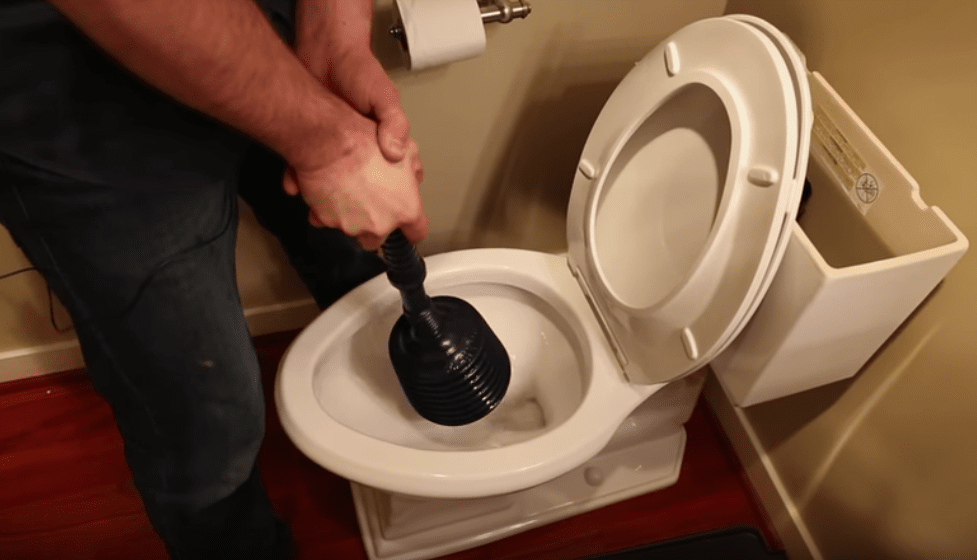Why You Should Inspect Your Sewer Line For Roots
While Seattle’s trees might bring joy to your heart, their roots can play havoc on your pipes. Over time, the integrity of your sewer lines can be compromised by roots, causing cracks and blockages that can lead to a sewer backup.
Root systems are made from large roots that provide support and stabilization, and smaller, feeder, roots that supply water and nutrients. Generally, roots grow within the top 18 inches of soil but can go deeper depending on conditions. It’s important to know that the roots of trees and shrubs generally extend more than two times the height of the plant. Even if it doesn’t look like a tree is near your sewer line, its roots could still possibly cause issues.
How Roots Cause Damage
For the most part, roots will enter the pipe around the joint, but they can also exploit small cracks or thin areas in the pipe wall. The material of the pipe helps decide resistance to roots. For example, clay pipes are easily penetrated by roots and will quickly become damaged. PVC pipes are less susceptible to root intrusion, though they can be penetrated, particularly if joints aren’t tightly fitted. If not disturbed, roots will completely fill up a pipe, creating a thick, web-like mass that slows downflow and traps debris. In severe cases, the roots can grow so large that they crack the pipe or joint, causing it to collapse.
How Rooting Helps
Cabling a pipe cuts off the pieces that are on the inside of the pipe and clears out any blockages. However, the root on the outside of the joint will continue to grow and put pressure on the pipe. Eventually, the root will grow large enough that it can cause a crack and allow dirt to enter the pipe. For this reason, it’s important that you have your sewer line video inspected to check the conditions of the pipe. Doing so allows you to make plans for eventual sewer line replacement instead of being caught off guard.
If you think it’s time to have your pipes cabled, give Best Plumbing a call. Using our advanced video inspection process we can spot where roots have penetrated your pipes and created blockages. We can also repair any damage roots have caused before it becomes a more serious problem! We proudly serve the greater King County area.
Best Plumbing: Commercial & Residential Plumbers - Seattle & All of King County Comments: No Comments
New Homeowner’s Guide to Plumbing Inspections
Becoming a new homeowner in Seattle is an exciting time, but it can also feel stressful. Let Best Plumbing help relieve some of that stress with this new home plumbing inspection guide. Identifying problems in your plumbing now can save you a lot of time, money, and headaches down the road.
Water Heater
It’s important to take a look at your water heater when buying a new home. Look for any signs of corrosion, be sure to ask about the heater’s age, and verify the last time it was serviced. If the heater is older than 15 years, you’ll want to get a new one installed soon.
Sewer Line
Be sure to have your sewer line inspected with a camera before you move in. A video inspection will reveal if you have roots or other items intruding into your sewer line. Roots can result in serious blockages so it is important to check this sooner rather than later. Contact Best Plumbing to arrange a sewer line inspection for your new home today!
Water Pressure & Drainage
Testing the water pressure of your sinks and showers will not only help you determine if the pressure meets your personal standards, but it can also indicate if there is an underlying issue in your water lines.
In addition to testing the water pressure, be sure to flush the toilets, and run water through all of the sinks to make sure the drains are working properly. Afterwards, take a look at your pipes and any crawl spaces or basement areas where leaks may be an issue. You’ll be able to check that your water is running cleanly and properly and also ensure your pipes aren’t leaking.
Pipes
Makes sure to find out the age and material of your existing pipes, as this will dictate when you need to replace them in the future. This is primarily a concern if you aren’t buying a newly constructed house, as the pipes may not have been changed for some time.
If you discover you have lead pipes, galvanized pipes, or older brass or bronze fittings, be sure to get your water tested. While lead service lines have largely been removed from use, the pipes and fittings that were connected to the lead pipes might not have been. These pieces could have absorbed lead and, as they corrode, may now be releasing lead particles into the water supply. If your water test returns a lead concentration value greater than 15 parts per billion, call Best Plumbing to get your pipes replaced immediately.
Trust the Experts
This can feel like a daunting list. That’s where we come in. Serving the Puget Sound area since 1968, Best Plumbing is available for all of your plumbing needs! Contact us online or call us today at 206-633-1700 to arrange an inspection and we’ll take care of the rest.
Plumbing Tips | Best Plumbing: Commercial & Residential Plumbers - Seattle & All of King County Comments: No Comments
Plumbing Facts and Fiction
Plumbing isn’t always the most accessible topic and misinformation can cause a lot of confusion. Even worse, it could cost you a lot of money if a mistaken idea means you don’t take care of a plumbing issue quickly enough. Best Plumbing in Seattle is here to help set the record straight. Keep reading to learn about three common misconceptions as we separate plumbing fact from plumbing fiction!
Leaky Faucets are Nothing to Worry About
Best Plumbing’s verdict? False. While it might not seem like an immediate problem, minor leaks can lead to a major problem over time. One drip? Okay, but how about ten-thousand? That’s a significant amount of water waste. Leaky faucets, toilets, or appliances should be addressed sooner rather than later. The leak could be the result of a broken seal, a cracked pipe, or potential issues with water pressure. If you suspect that the leak is being caused by more than a loose bolt, call a professional plumber for an inspection.
Water Heaters Can Explode
While it certainly makes for an eye-catching headline, the reality is decidedly less dramatic. It’s true that old, poorly maintained, water heaters can sometimes rupture under rare circumstances. However, the result will be a cracked tank, not an explosion. Moreover, modern water heaters are installed with pressure relief valves that are designed to release built-up pressure and prevent this exact problem. Sometimes water heaters make rumbling noises, which can mislead homeowners into thinking danger is imminent. However, this is generally a sign that sediment has collected at the bottom of the tank and is preventing efficient operation. So if you do hear noises from your water heater, it is probably time for a check-up. In general, valves should be checked every few months, and the tank should be drained yearly. This will ensure your water heater stays in top shape.
Flushable Wipes are Pipe-Friendly
This is a bit of an exaggeration. While a better solution than non-flushable wipes, the flushable variety still aren’t the best thing for plumbing systems. This is because they degrade at a much slower rate than toilet paper and can cause potential blockages or other problems, especially if they are used in large quantities.
Learn More From Your Local Experts
Best Plumbing is your local Seattle plumbing expert and we been serving the greater Seattle area since 1968. For help with leaky pipes, troublesome water heaters, and more, give us a call at (206) 633-1700. We also provide emergency plumbing services for issues requiring immediate attention. Visit our website for more information or check out our other blogs and YouTube channel for more great plumbing tips!
Drain Cleaning | Best Plumbing: Commercial & Residential Plumbers - Seattle & All of King County, Plumbing Tips | Best Plumbing: Commercial & Residential Plumbers - Seattle & All of King County Comments: No Comments



